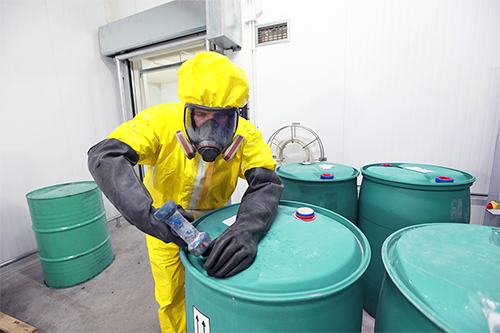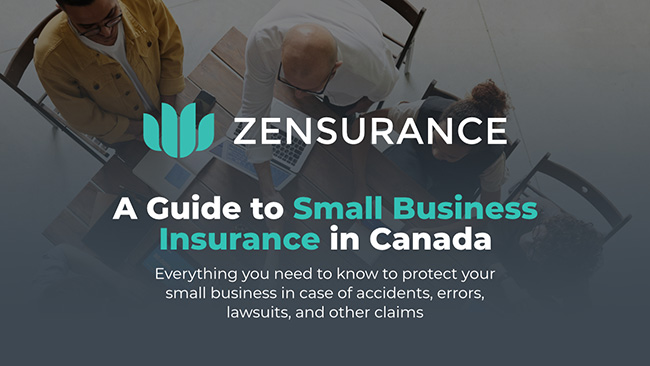With climate change and environmental awareness hitting an all-time high in Canada, small business owners in every sector of the economy would be wise to ensure they aren’t exposed to the threat of a third-party pollution liability lawsuit.
Environmental- and pollution-related litigation is not just a theoretical concern. It’s a real threat that small business owners in Canada are facing. Consider this: in July 2021, a judge certified a $40 million class-action lawsuit launched by a group of homeowners near Ottawa claiming a local fire research lab polluted their drinking water and devalued their homes. This is just one example of how pollution can lead to significant legal and financial consequences.
Pollution liability insurance is designed to protect businesses and contractors against specific risks and environmental liabilities associated with exposure to pollution while working at a job site. It covers third-party claims against bodily injury, property damage, and legal and cleanup expenses caused by hazardous pollutant exposure from your company’s operations while you complete a job and after it’s done.

Related Posts
Sign Up for ZenMail
"*" indicates required fields
Categories
Imagine a scenario where you’re hired to remove mould for a client, but despite your best efforts, some of it remains. If this oversight leads to a respiratory illness in the client, you might worry about potential liability issues. However, with the right pollution liability insurance, you can rest easy, knowing that you’re protected from such situations.
Does Your Business Need Pollution Liability Coverage?
Any business that uses toxic chemicals or materials could face a third-party pollution liability lawsuit. This includes:
- Hair salons
- Professional cleaning companies
- Dry-cleaning services
- Pest control professionals
- Spray painters
- Auto repair shops
- Garages
- Junkyards
- Industrial manufacturers
Contractors and subcontractors in the construction industry are particularly at risk. Activities like mould and asbestos remediation, fire restoration, and drilling can lead to bodily injuries and property damage. For example, accidentally striking a natural gas line while drilling could cause a significant leak and damage.
There’s a common misconception that only contractors dealing with hazardous waste need pollution insurance. In reality, nearly all contractors are exposed to pollution-related risks not covered by a standard commercial general liability policy.
What to Look for in a Pollution Liability Policy
Protecting your business from a pollution liability claim means understanding the potential risks you face and having a policy that takes into consideration multiple factors, including:
- The types of coverage available. That may involve pre-existing and new pollution conditions relative to your business, cleanup costs resulting from regulatory requirements, and legal expense coverage to protect you from third-party claims alleging damages arising from your business’s activities.
- The scope of coverage. Insurance policies generally include exclusions for some types of bodily injury and property damage claims. For instance, third-party bodily injury coverage consists of protection for injuries, sickness, and death. However, some policies may not include coverage for mental and emotional injuries, and they do not include coverage for ‘virus removal’ services.
- Voluntary discoveries. Some pollution liability policies may exclude environmental cleanup costs that a policyholder voluntarily discovers. For example, some form of environmental contamination, such as drilling, is uncovered at a construction site for a typical business operation. Some insurance companies may include such an exclusion to deter someone from drilling holes in a property to find such a problem and file a claim for damages.
How to Get Low-Cost Pollution Liability Insurance
Don’t leave your business exposed to the threat of a third-party lawsuit because of environmental contamination. In today’s environmentally conscious world, having the right insurance is more important than ever.
Fill out our online application for a free quote and take control of your business’s future by safeguarding your finances. Have a chat with one of our licensed brokers if you have questions about the environmental liability risks you may face.
We’ll get the low-cost pollution liability insurance coverage you need and customize it to suit your specific requirements.
– Updated June 5, 2024.
Related Posts
What Is a Deductible in Small Business Insurance? (Definition, Examples & How It Works)
A deductible is the amount your small business pays out of pocket when you file an insurance claim. Understanding how deductibles work can help you lower premiums, avoid surprises, and choose the right coverage.
Why E-Commerce Insurance Matters for Online Sellers in Canada
If you sell products online in Canada, e-commerce insurance – also known as online business insurance – is essential to protect your finances, inventory, and reputation. Here’s what online sellers, dropshippers, and small e-commerce businesses in Canada need to know.
What Happens If Your Small Business Gets Sued in Canada?
Being sued as a small business owner can be financially and emotionally overwhelming. Legal defence costs can quickly climb into the tens of thousands of dollars. This article explains what happens when your business is sued, how business liability insurance can help cover legal fees, and how to reduce your risk of being sued in the first place.









